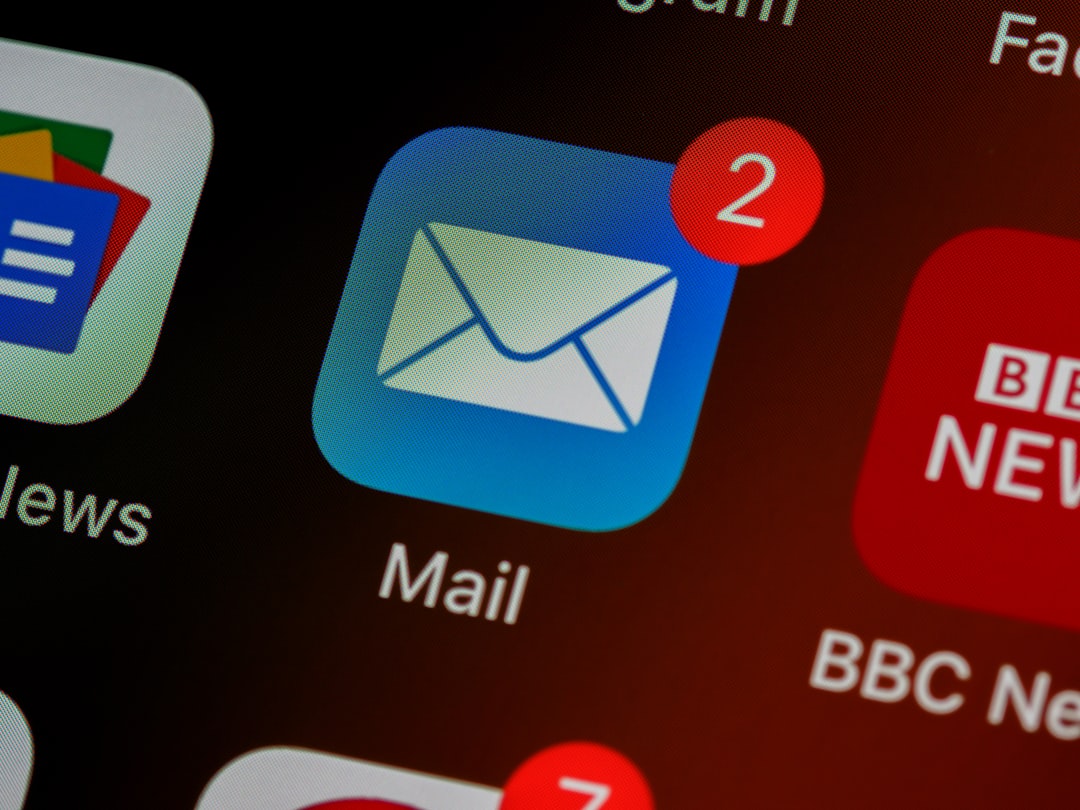Here are posts from February 2023:
Thank you. Seriously.02/28/23 10:18 am
I recently wrote about the power of saying “I don’t know.” Read the whole thing, but the summary is simply that telling a client (or potential one!) “I don’t know” at least acknowledges that you heard them, you care about their question, and you’re open to finding an answer — even if you don’t have one yet.
There is similar power in saying “thank you.” And it’s shockingly rare to get thank you emails these days. Stand out by expressing gratitude.
Many of us have heard the advice that you should send a thank you note after a job interview. Shockingly few people actually do this. I have friends who are hiring managers who literally will not extend a job offer to an otherwise-qualified applicant if they don’t send a thank you note. If I’m hiring someone for a sales or customer-facing role, I count myself in that camp.
Send a thank you note after a job interview. Send a thank you note after people make introductions for you. I’ve written about being generous with your time and meeting with folks who won’t turn into paying customers anytime soon. When you do so, and those people don’t take an extra two minutes out of their day to send a thank you note… it sucks.
I know for some of us it’s easy to get swept up in crafting the perfect thank you note. But if you’re not sending one because you think it would take a couple hours to perfect — stop aiming for perfect. Send a two-sentence thank you note: Thanks so much for taking the time to meet with me. I really appreciated getting to speak!
We’re all busy. A short thank you note isn’t a bad thank you note, and it’s roughly infinitely better than no thank you note.
If you have the time, inclination, and writing chops to pull off a beautiful thank you note with paragraphs, by all means, go for it. But don’t let the fear of needing to send that artful note hold you back from sending anything at all. Thank you notes are meaningful. They spread good cheer and show you appreciation for the other person’s time. Send them.
Get new posts via email.
“I don’t know” is more powerful than you think02/21/23 8:45 am
I’m a podcast listener. One show I love is Judge John Hodgman, where John — most famously known as the PC in those “Hello, I’m a Mac” ads with Justin Long — adjudicates silly conflicts between friends: I came to the show late, so for a few months I’ve been working through the (deep) back catalog.
Just this morning, I listened to an episode from February 25, 2016: Phone of Contention. A wife brings suit against her husband because he rarely answers her calls or texts. John reads some screenshots of text “conversations” between the two of them, where the wife asks about what the vet said about a lump on their dog, and then checks in again 90 minutes later — with no response from the husband.
The husband explains on the podcast that he didn’t have the answer yet — he hadn’t spoken to the vet — so he didn’t reply.
John politely explained to the husband that this behavior was, in a word, bonkers. I agree.
I’ve written previously that I’m absolutely delighted to have a reputation as someone who responds quickly. And I wrote just last week about how to keep even difficult customers happy. This case gets at one key approach.
“I don’t know” is a great response to a customer, because it shows that you heard their question and are willing to respond. There’s a paralysis we get sometimes, where we don’t want to share something — including a reply — until we’re confident it’s perfectly accurate. That’s a problem.
Get new posts via email.
If a client or a potential customer emails or texts with a question that you don’t know the answer to, you win so much good will just by replying: I actually don’t know on that one, but I will try to find out.
Similarly, messages that convey I’m actually not sure I understand this question — can you elaborate or can we talk live are powerful ways to convey that you want to help, even if you’re not sure how. And I also encourage you to send messages like Hey, just letting you know I saw this question, but it’s going to take some time to write-up the response. I’ll get back to you by Thursday!
This approach is meaningful to the person on the other side. They took the time to write you, and they need information. Even if the only information you can share back right now is I see you, I hear you, and I have no further information at this time, that means something to the recipient. It’s okay to not know the answer — as long as you say so.
The customer is always something: On dealing with difficult customers02/15/23 8:49 am
If you have customers, you will sometimes have difficult customers; this is a reality of life as much as business: Sometimes, people are difficult. Sometimes, people are terrible. And sometimes these difficult people are our paying customers. So how do you handle challenging ones?
There’s a popular saying in the US — most popular of all amongst consumers themselves — that the customer is always right. That slogan gained popularity and traction in the 1940s, in part as a response the prevailing wisdom of the day: caveat emptor, or buyer beware.
The expression sounds great on its face, and again, customers sure love to flaunt it when they feel aggrieved. But with any prodding at all, of course, the customer is always right makes no sense at all. No one is always right. We make mistakes.
Other languages use different versions of this expression. In French, they say the customer is never wrong, which feels a lot like the same message, but to my ear carries a little bit of quintessential French shade. If the customer is always right, they should get what they want. If the customer is never wrong, they sound… high maintenance.
In German, the expression is the customer is king. There’s a bit of snark there, too: A king is unelected, rules by fiat, and just gets to decide, whether right or wrong. This is not the customer I want.
Japan goes a step further still. The equivalent Japanese expression is the customer is a god. Okay then.
But in Spanish and Italian, the expression they use about customers resonates with me. In those languages, the motto used is the customer always has a reason.
I like that. The customer always has a reason.
Intellectually, we know this. If a customer is angry or difficult or heated — even a customer we know without a doubt is wrong — we also know that the customer has a reason they’re feeling the way they are. There’s a reason they think the things they think.
We might not agree with that reason. We might not find it reasonable. But in our best moments, we know the customer has a reason, that their anger/behavior/word choice/tone is motivated by some specific things they’re experiencing.
Of course, that the customer has a reason doesn’t excuse or defend their anger/behavior/word choice/tone. But it explains it.
But it’s only in our very best moments that we can always remember this truth, that the customer has a reason. It’s hard, in real time, to remember and to leverage the knowledge that the customer has a reason when we’re feeling triggered by their lousy behavior.
It sometimes feels impossible to empathize with difficult customers. Even when that’s a challenge, though, the best trick to dealing with these folks is to at least understand why they’re thinking the way they are. We have to find the customer’s reason for acting the way they are.
Sometimes when a customer requests feature X, it’s because they want feature X. Makes sense. But sometimes a request for feature X means that they really want feature Y, or that don’t even realize feature Z exists.
The real magic when dealing with a difficult customer is understanding their reason, and to find ways to explain why they’re wrong — without ever making them acknowledge (or even aware of) their wrongness. Very often, anger masks confusion or uncertainty. A yelling customer is likely one who doesn’t know or understand something, and that’s a vulnerable feeling, and most of us don’t like feeling vulnerable — especially in a work setting.
Figuring out and understanding the angry customer’s reason doesn’t mean you cave, give in, or sacrifice. It’s knowledge you use to shape your approach with that customer, to better frame how you handle your response.
Even though the customer isn’t always right, it’s a near certainty that the customer always thinks they’re right. Your job is to figure out why a difficult customer thinks they’re right, and to resolve a solution without that difficult customer ever having to feel wrong.
It’s not easy. And it can’t sound faked or forced; we’ve all been annoyed at the customer service rep who shares phony-sounding platitudes. So it’s worth working to funnel your own frustration at a difficult customer into Big Detective Energy, making it your job to figure out why they’re upset — and then use those insights to get them back on the right path. Angry customers who feel heard and understood stop being angry — even if the end result isn’t what they initially had in mind.
Because they’re human. What they really want is just that — to be heard and understood.
Get new posts via email.
Be generous with yourself, too02/08/23 2:15 pm
Last week, for the first time, I was hit with COVID. Hard. It sucked.
I got exposed on a Saturday. Started having symptoms Monday night, got even worse Tuesday, but didn’t test positive until Wednesday. And Thursday and Friday were especially hellacious.
And to be honest, I wasn’t sure what to do regarding my work.
I didn’t get COVID while I had a full-time job with benefits like, you know, sick days. I got sick while fully self-employed, just a month into the existence of Lex Friedman Consulting. I had signed contracts — and collected deposits — from a couple brand new clients on Monday and Tuesday. And by Wednesday, I was already struggling.
I moved the meetings I could. But meetings with brand new clients felt immovable. Meetings with folks that had been scheduled weeks in advance (because of their own hectic schedules) seemed dangerous to move — how long would I wait to get back on their calendars?
So Wednesday I had a bunch of meetings. By 4:30, I finished the last one, and I went upstairs to my bed, where I remained until the following morning.
Thursday was more of the same. Thursday night, however, was terrible; I didn’t sleep, felt worse by the minute, and truly couldn’t figure out what to do. Friends and family were encouraging me to cancel my meetings, and at first glance, my conclusion was I couldn’t.
At second glance, I decided four of the eight meetings could move, and I apologetically emailed the folks involved to explain I was sick and needed to reschedule, and shared my calendar scheduling link.
The other four, though, felt too precious to move.
When I jumped on the first one, a long-scheduled call with a busy friend, he immediately noted I sounded terrible, and I explained the situation. He then asked if we should reschedule, and I explained I didn’t want to wait another few weeks because I needed to pitch him on something time-sensitive. He asked: “How about Monday?” We rescheduled, and I went back to bed for a couple hours.
There’s no great story here. I did two half-hour meetings back to back later that day, and the folks in those meetings were grateful, even if apologetic that I had to see them. The fates saw to it that the fourth and final meeting of the day had to get canceled because the person on the other side lost power.
The truth is, I wasn’t especially kind to myself. In fact, I bet if I’d canceled more Wednesday and Thursday meetings, I’d be a day further along on my recovery; the rest did wonders for me.
But I was looking out for my clients and focused on the health of my still-new business. I was afraid. Specifically, I was afraid that if I canceled meetings, my business would suffer. So instead, I suffered.
I was afraid that if I canceled meetings,
my business would suffer. So instead, I suffered.
I don’t think it was admirable that I was looking out for my clients and business this way. I think it was a mistake. No one objected to my need to reschedule. I think two brand new clients whose meetings I did keep would have understandably been frustrated if I had instead bumped their meetings to the following week. But I also think they would have understood.
And frankly, if they didn’t understand, it’s probably better to refund their deposits and part ways than to keep customers who don’t understand that I’m, you know, human.
So this is a reminder to myself as much as everyone else to be generous with your own self too. Yes, being generous with your time is important and pays dividends. Showing that same generosity to yourself means taking the sick day, blocking some time between meetings, or shutting down at the end of the day when your mind needs rest.
I didn’t get it right this time. That’s okay. We don’t bat 1000. But I promise you — and more importantly, me — next time, I’m canceling the whole darn day.
Get new posts via email.
My email with a 100% response rate02/22/23 10:26 amI use this site to share thoughts, advice, tips, and tricks on doing better in business and life. And the vast majority of posts here on Your Intermittent Lex are free for everyone. But because I have paying subscribers, I do need to put some content behind the paywall. This is one of those times.
Don’t fret, though, free readers. I love you, too. And I’ll have another post as a follow-up to yesterday’s — the one on the power of saying “I don't know” — soon.
That post about “I don't know” was really focused on how it’s important to reply to people even if you don’t have the answer they want right way, because it lets them feel heard and know you care. Sometimes, though, you’re interacting with customers (or potential customers), and suddenly they go silent.
So here’s my surefire technique to get a response when suddenly a great prospect starts ghosting you.
Okay. Now we’re in the part for my paid subscribers only. Thank you, as always, for your membership.
Dear [Person],
I promise I can take a hint, but I wanted to check in one more time.
That’s it. That sentence — and in particular, that phrase “I promise I can take a hint”… I tell you, friends, I’m batting 1000 with that one. I’m not trying to be a jerk with it, and I’m obviously not trying to rub the recipient the wrong way.
Rather, I’m trying to say hey, I don’t want to keep annoying you. I’ll stop emailing you if I don’t hear back. But we had a good thing going, and I can no longer tell if you’re slow or had a change of heart.
But for whatever reason, that “I promise I can take a hint” angle has literally never steered me wrong. It doesn’t always close the deal; it doesn’t guarantee a win rate. It does — in my experience — guarantee a reply.
With great power comes great responsibility, though. So … use this wisely and sparingly. And of course, make it your own; if that phrase doesn’t sound like you, experiment until you find one that does.





